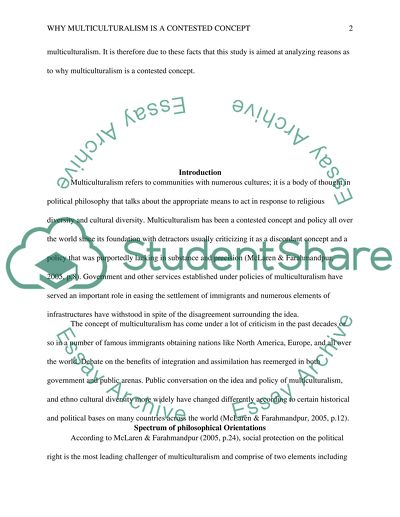Cite this document
(“Why multiculturalism is a contested concept Essay”, n.d.)
Retrieved from https://studentshare.org/sociology/1403048-why-is-multiculturalism-such-a-contested-concept
Retrieved from https://studentshare.org/sociology/1403048-why-is-multiculturalism-such-a-contested-concept
(Why Multiculturalism Is a Contested Concept Essay)
https://studentshare.org/sociology/1403048-why-is-multiculturalism-such-a-contested-concept.
https://studentshare.org/sociology/1403048-why-is-multiculturalism-such-a-contested-concept.
“Why Multiculturalism Is a Contested Concept Essay”, n.d. https://studentshare.org/sociology/1403048-why-is-multiculturalism-such-a-contested-concept.


